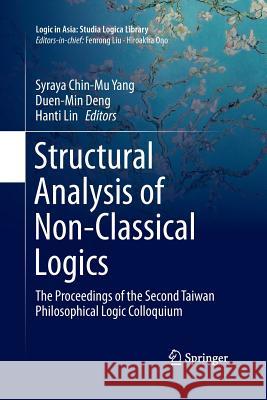Structural Analysis of Non-Classical Logics: The Proceedings of the Second Taiwan Philosophical Logic Colloquium » książka
topmenu
Structural Analysis of Non-Classical Logics: The Proceedings of the Second Taiwan Philosophical Logic Colloquium
ISBN-13: 9783662517123 / Angielski / Miękka / 2016 / 278 str.
Structural Analysis of Non-Classical Logics: The Proceedings of the Second Taiwan Philosophical Logic Colloquium
ISBN-13: 9783662517123 / Angielski / Miękka / 2016 / 278 str.
cena 403,47
(netto: 384,26 VAT: 5%)
Najniższa cena z 30 dni: 385,52
(netto: 384,26 VAT: 5%)
Najniższa cena z 30 dni: 385,52
Termin realizacji zamówienia:
ok. 22 dni roboczych.
ok. 22 dni roboczych.
Darmowa dostawa!
Kategorie BISAC:
Wydawca:
Springer
Seria wydawnicza:
Język:
Angielski
ISBN-13:
9783662517123
Rok wydania:
2016
Wydanie:
Softcover Repri
Ilość stron:
278
Waga:
0.41 kg
Wymiary:
23.39 x 15.6 x 1.57
Oprawa:
Miękka
Wolumenów:
01











